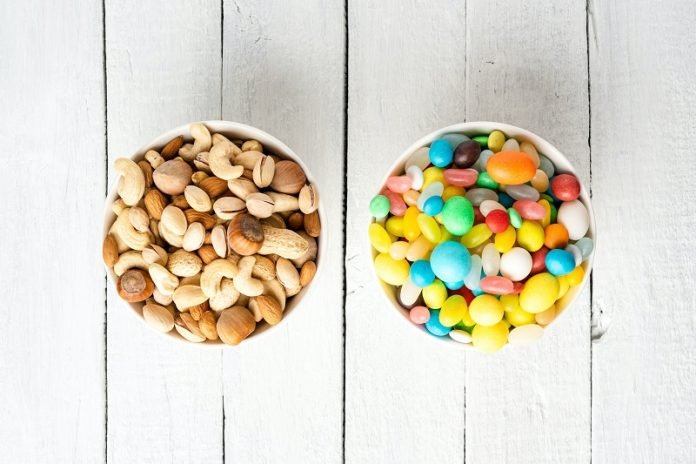
Free sugars refer to monosaccharides (such as glucose and fructose) and disaccharides (such as sucrose or table sugar) added to foods and beverages by manufacturers, cooks, or consumers.
It also includes sugars naturally present in honey, syrups, and fruit juices.
These sugars are considered “free” because they are not contained within the cells of fruits and vegetables, and are instead easily digested and absorbed by the body.
High intake of free sugars has been linked to a range of health issues, including obesity and type 2 diabetes.
A new study has found that consuming higher amounts of free sugars can increase the risk of cardiovascular disease.
Free sugars are defined as added sugars and sugars found naturally in fruit juice and honey.
The researchers analyzed data from 110,497 individuals who had completed at least two dietary assessments as part of the UK Biobank study.
The participants were tracked for approximately 9.4 years.
During this time, 4,188 people experienced total cardiovascular disease (heart disease and stroke combined), 3,138 experienced heart disease, and 1,124 experienced strokes.
The researchers found that total carbohydrate intake was not associated with cardiovascular disease outcomes.
However, when the types and sources of carbohydrates consumed were examined, it was found that higher free sugar intake from foods such as sugary drinks, fruit juice, and sweets was associated with an increased risk of all cardiovascular disease outcomes.
For each 5% higher total energy from free sugars, the associated risk of total cardiovascular disease was 7% higher. The risk of heart disease was 6% higher, while the risk of stroke was 10% higher.
Additionally, the study found that consuming five grams more fiber per day was linked to a 4% lower risk of total heart disease, although this association did not remain strong after accounting for body mass index (BMI).
The authors of the study suggest that replacing free sugars with non-free sugars, which are mostly those naturally occurring in whole fruits and vegetables, and increasing fiber intake may help protect against cardiovascular disease.
The study also highlights the importance of considering the type and source of carbohydrates consumed when researching cardiovascular health.
There are some tips on how to eat less free sugar:
Choose whole foods: Whole foods like fruits, vegetables, whole grains, and legumes are great sources of nutrients and fiber and are low in free sugars.
Read labels: Check the labels of processed foods to see if they contain added sugars. Look for ingredients like corn syrup, fructose, and sucrose, which are all types of added sugars.
Limit sugary drinks: Beverages like soda, fruit juices, and sports drinks are loaded with free sugars. Try to replace these drinks with water, herbal tea, or low-fat milk.
Avoid processed foods: Processed foods like cookies, cakes, and candy are high in free sugars. Limit your intake of these foods and opt for whole foods instead.
Cook at home: Cooking your meals at home gives you more control over the ingredients you use. This can help you reduce your intake of free sugars.
Use natural sweeteners: Instead of using refined sugar, try using natural sweeteners like honey, maple syrup, or stevia. While they still contain sugars, they are less processed and can be used in moderation.
Be mindful of portion sizes: Even healthy foods like fruits can contain free sugars, so it’s important to be mindful of portion sizes. Stick to recommended serving sizes and eat a variety of foods to ensure you’re getting all the nutrients your body needs.
If you care about heart health, please read studies about the best time to take vitamins to prevent heart disease, and the tongues of people with heart failure look different.
For more information about heart health, please see recent studies about how espresso coffee affects your cholesterol level, and results showing common snacks may lead to high blood pressure, and heart rhythm disorder.
The study was conducted by Rebecca Kelly et al and published in BMC Medicine.
Copyright © 2023 Knowridge Science Report. All rights reserved.



